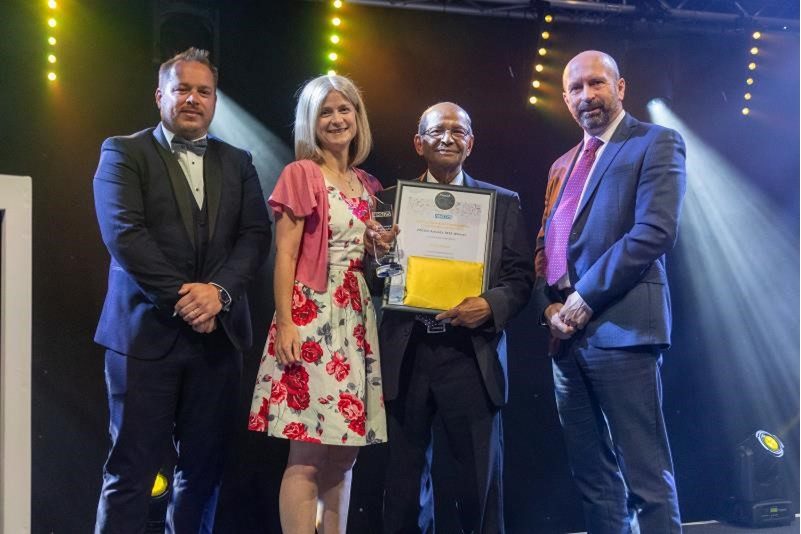As specialist in ageing, it comes as no surprise to hear that geriatrician Dr Bijoy Mondal is still working at 82.
Many of his patients are younger than he is. But his motto – to himself and his patients – is ‘use it or lose it’.
“Working keeps my brain active. As long as I’m mentally and physically okay then why do I need to retire? People might say that I’m foolish but that’s my way. You can do anything if you have the desire – and obviously work hard.”
And work hard he has. Dr Mondal will soon be approaching 50 years’ service to the NHS in Rotherham. In recognition of his dedication to healthcare, Dr Mondal was recently presented with a special award for Outstanding Contribution to the NHS at this year’s Proud Awards hosted by the Rotherham NHS Foundation Trust.
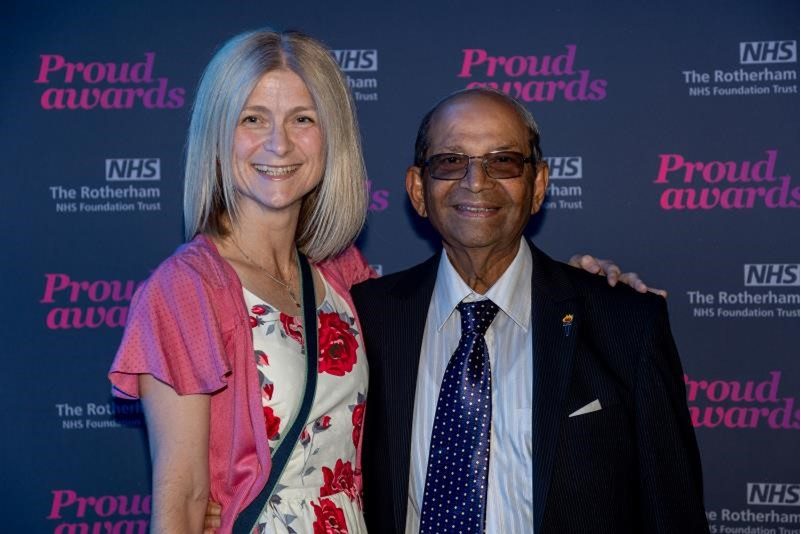
But for him, being a doctor is far more than just a title. It’s part of his make-up, his identity. Throughout his long-serving career he has advocated for the rights of older people, going far beyond the call of duty to give people the care they deserve. For much of his early career, he managed hundreds of hospital beds by himself and seldom took a day off, putting the care of his patients above anything else.
“People have asked me before who is important to me. Other than my family, my patients are my number one priority. I am here because of them. My mortgage is paid because of them. My children went through school because of them. This hospital was built because of them. Everything I have done in life is because of them,” he says.
Originally from what is now Bangladesh, Dr Mondal grew up wanting to be an engineer. But his oldest brother was a doctor and his parents steered a young Bijoy towards a career in medicine.
“They wanted me to serve the poor people who were neglected and couldn’t afford medical care. But my father encouraged me to move to England as he said I’d never be a good doctor if I didn’t.”
After graduating from Dhaka Medical College in Bangladesh, Bijoy moved to the UK in 1965. However, despite having studied for five years, he hadn’t completed his pre-registration training before moving, which he says was a foolish mistake. It meant he couldn’t register with the General Medical Council so was still seen as a student.
He started a one-year placement in South Wales, taking on the responsibilities of a doctor but on a student wage of £1 per day. His intention was that he would move back to India after he’d qualified as a doctor to serve the people there. However, with the Independence of Bangladesh conflict arising, it wasn’t safe for him to return.
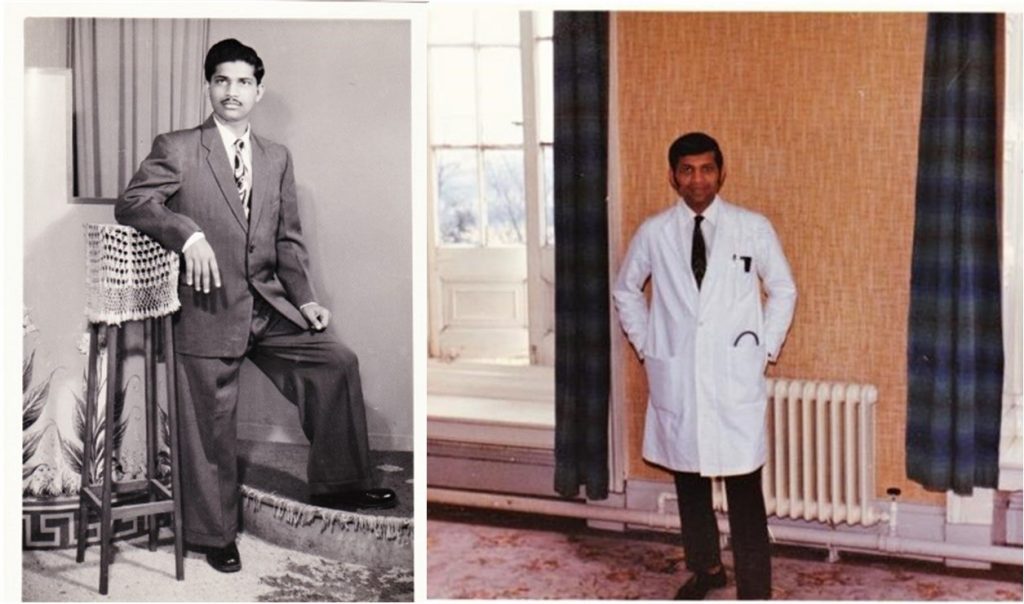
At that time, in the late 1960s and early ‘70s, it was difficult to get a consultant position. He initially started his career as a respiratory physician but his mentor, Dr CDR Pengelly, suggested geriatric medicine, a relatively young specialism that was growing quickly.
He was offered a job in Harrogate but the next day a role came up in Rotherham.
“I needed a challenge and Rotherham was a plain sheet as there was nobody else there, no other doctors in geriatrics. Back then, older people were being cared for in old workhouse buildings. My parents wanted me to serve the destitute and this seemed a way to please them.”
Dr Mondal and his wife Dolly moved to Rotherham in January 1975. Rotherham General Hospital wasn’t built then, so he managed 300 beds across six hospitals in the town: Badsley Moor Lane, Doncaster Gate, Montagu in Mexborough, Sandygate House, Wathwood isolation hospital, and the old workhouse at Moorgate. And he did all this on his own, without the assistance of any junior doctors to share the load.
“I realised on my very first day that elderly people weren’t getting the right care they needed. Any life is important, no matter the age. When I was a younger man just starting out as a doctor, my parents and grandparents were geriatrics and it hurt to think of them being treated in that way, like they didn’t matter. I knew I’d be geriatric one day, like we all will.
“Others didn’t always take geriatric medicine too seriously, but elderly people don’t have time to wait. Time is not in their favour. Their immunity is lower, their body resistance not as good, so you have to work quickly.”
Dr Mondal changed the admission process so that if a GP called with a male patient over 65 or a female over 60, they could be admitted straight away for further assessment.
“People said ‘what if you have no bed?’ I told them I’ll make one. Many people said I wouldn’t cope on my own and that it was a barmy idea. But those patients needed my care and I could help them a lot.”
During a shift, he would be busy speaking to patients during his ward rounds, doing multi-disciplinary meetings with nurses and social workers to co-ordinate an integrated plan for future care and treatment, and meeting relatives during visiting times to answer any questions they might have had.
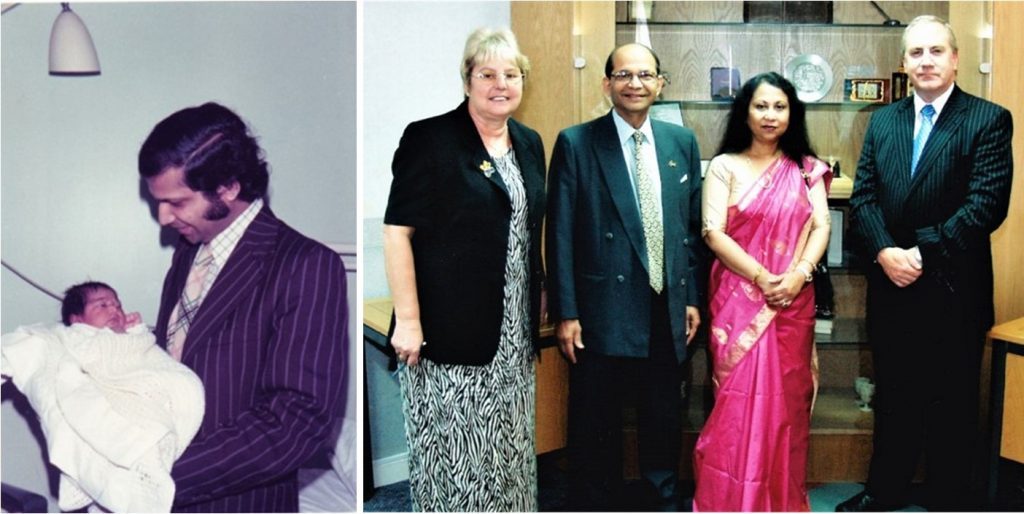
“My home life was non-existent. My wife would say to me, ‘where are you going now? It’s seven o’clock at night.’ But that was visiting time, so back I went. My first child was born at Moorgate Hospital during one of my ward rounds so I missed the birth. There was no paternity leave back then and it was unthinkable to leave work.”
In one year, Dr Mondal didn’t take a single day’s annual leave. Even if he got sick, he felt like he couldn’t take a day off as there was nobody to cover for him. But another consultant, Dr Cantor, offered to help out so that Dr Mondal could take a well-deserved holiday. He and his wife took their young daughter back to India to meet her grandparents.
On his return, Dr Mondal realised he needed help and convinced the hospital’s chairman and general manager to get him a colleague. He also pushed for a bigger hospital at Badsley Moor Lane to provide more care for elderly people who didn’t need a hospital stay for a medical condition but would benefit from social-based care if they were isolated or needed rehabilitation.
This became his base and he was promoted to the geriatric unit general manager, the first overseas doctor to do so. Then, five years later he was promoted again to clinical director of geriatric medicine.
A new unit ‘Medicine for the Elderly’ – now called Moorgate Wing – opened at Rotherham General Hospital in 1994, with Dr Mondal one of the two doctors who managed 140 beds across its five wards, as well as patients on the two acute wards and any outpatients.
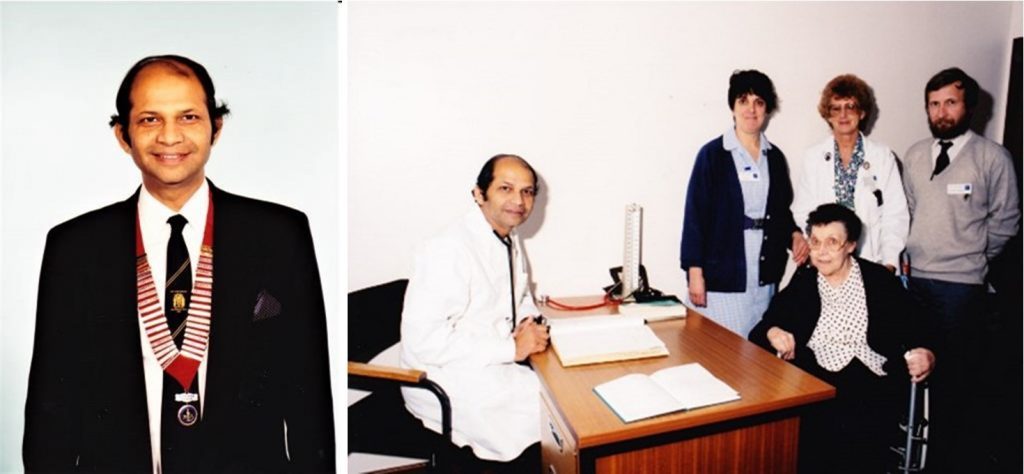
A morning ward round would see him call upon 98 patients, but this gradually got easier as the hospital employed more specialists – all of whom were trained by Dr Mondal. They opened a stroke ward, orthogeriatric unit, and Parkinson’s clinic.
Dr Mondal also started the Parkinson’s Society in Rotherham and was made president, raising over £100,000 over the years thanks to the generosity of patients and the public. This funding has paid for things like a DaTscan brain scanner to diagnose Parkinson’s, a bus to take the elderly on trips, setting up of an incontinence clinic, and a respite unit so families could take a break when needed.
As he was reaching retirement age in 2005, Dr Mondal was approached by a group of GPs to offer him a role in primary care for a pilot scheme to save money and resources on unnecessary hospital admissions.
Based at the health village at Doncaster Gate, Dr Mondal would visit four nursing homes as well as people in their own homes. He then relocated to Rotherham Community Health Centre on Greasbrough Road when it opened in 2009, which is where he is still based today.

During his home visits, Dr Mondal saw patients who were too frail to go into clinic or didn’t have access to transport, performing things like ECGs or IV therapy in patients’ homes.
He also initiated the idea of a separate ward for the community team, with 20-bed Oakwood Rehabilitation Centre treating older people for minor ailments and falls without the need to admit them to hospital.
“I got a lot of satisfaction doing the ward rounds. It’s not always about medicine. That’s just a small part of it. I remember visiting a lady at her home one time. She had chest pain and needed an ECG. But she said to me ‘before you do anything can you make me a cup of tea’. She was so thirsty.
“Another time I was doing a ward round at Oakwood and a lady was refusing to eat breakfast as she hadn’t any sliced tomatoes. I phoned down to the kitchen requesting some and told I’d have to go out to the shop to buy some tomatoes and slice them for her. She was so happy; she went home not long afterwards.”
Life today is much different to the days when he first started in the ‘70s. A rise in technology means he can prescribe at the push of a button and runs a paperless clinic. But his role has also become more difficult, with patients having more complicated and complex needs than they did 50 years ago.
But he has no plans to slow down anytime soon. He does, however, find time to spend with his very understanding wife, Dolly and their three grown-up children and two grandchildren.
On accepting his award, Dr Mondal said: “I am very proud and overwhelmed to receive this award. But this is not for me but for all my colleagues past and present and all the patients I have seen in Rotherham throughout the years.”
